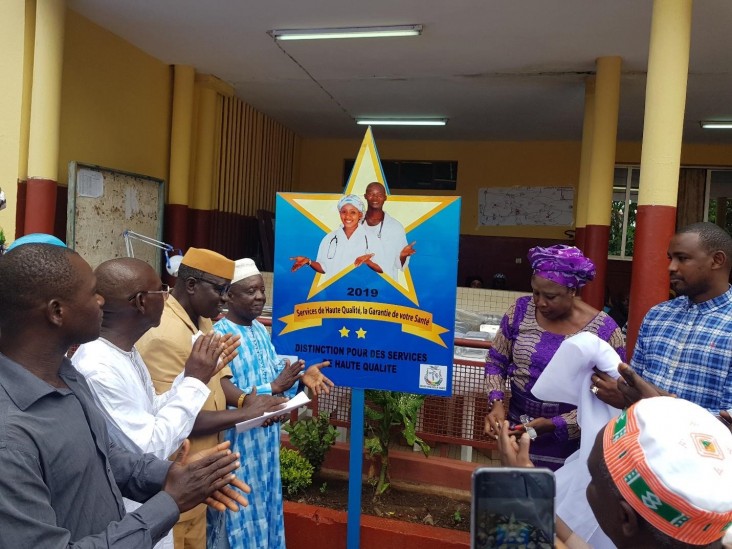Speeches Shim

Before the Ebola outbreak in 2014, state run health facilities in Guinea suffered from neglect. Particularly evident in poor, rural areas, this resulted in poor-quality services and treatment. Community members lacked faith in the public system. Those who were better-off resorted to using privately run clinics. When the epidemic occurred, the facilities were all but abandoned.
USAID’s support rehabilitated health facilities and provided equipment to help rebuild trust in public health facilities. Complementary to this approach, USAID supported communities to take ownership of the rehabilitation process and drive demand for higher quality services.
In 2016, the USAID-supported Health Communication Capacity Collaborative (HC3), renovated the Community Health Center of Ratoma in Conakry. Before renovations began, HC3 organized a series of dialogues between community health workers and the community. This allowed the community to identify the factors that prevented them from making full use of the health services. These factors included poor reception by health facility staff; deteriorating infrastructure; frequent medicine stock outs and corruption. For example, respondents cited several cases where the community was charged for free services such as childhood immunizations. Community members were involved in both planning and refurbishment of the facility. This helped to restore confidence between health providers and beneficiaries.
In 2017, the USAID-funded Health Service Delivery (HSD) project took over from HC3 and working together with the Government of Guinea and other development partners and communities, provided training for health workers, upgraded medical equipment, enabling the facility to provide a higher standard of care.
Since the renovation, donations of equipment, and different trainings for medical staff, there is increased use of and confidence in the facility. Attendance has gone from 1652 in 2017 to 1749 in 2018 and 1083 for the first six months of 2019.
Fatoumata Conté, Director of the Ratoma Community Health Center reflects: “three years ago, our health center was one of the most deserted health centers around because of the dilapidated state, poor services and poor treatment of patients by staff. Today, we are one of the best in town for providing quality health care.”
On September 11, 2019, the Community Health Center of Ratoma, through the Standards-Based Management and Recognition (SBM-R) process was awarded a second consecutive Gold Star by the HSD project for having succeeded in improving the quality of its reproductive health and family planning services.
In an effort to empower health workers and enable them to make decisions, solve problems and innovate at the local level, Jhpiego, a USAID partner in the HSD project, has initiated the (SBM-R) process to help them work together to achieve meaningful improvements in the performance and quality of the services they provide. It is a proactive, practical management methodology that focuses on the implementation of best practices in health centers.
The Health Service Delivery project has trained more than 700 health workers and has rehabilitated and equipped four hospitals and 14 health facilities across Guinea with modern medical equipment to provide high-impact maternal and child health services.

Comment
Make a general inquiry or suggest an improvement.